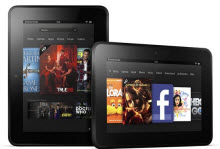Why companion devices should -- and will -- replace the PC


The other day ZDNet's mobile guru James Kendrick maintained that companion devices, such as tablets and Chromebooks, are not replacements for PC, and that people who want them to be replacements are "missing the point."
Kendrick has a good take, but when you pull back and look at the bigger picture, there are several compelling reasons why companion devices should -- and will -- eventually replace the PC.
People like Kendrick and I are happy juggling multiple devices, and we both have put systems in place that allow us to work seamlessly whether we are in front of a tablet, a smartphone, a notebook, or a desktop. We know the strengths and weaknesses of each of the platforms and are happy to work with them in order to get the benefits of each of the devices.
This allows us to get the best of all worlds.
But this method of working isn't for everyone.
Switching between multiple devices raises a whole raft of issues for both home and enterprise users. One of the biggest issues is keeping track of what data is stored where. Just moving a single document from an iPad to a notebook or desktop can tax some people's tech skills to almost the breaking point, and almost all the methods involve resorting to a third-party service, which may or may not be acceptable -- depending on the field you're working in.
It's not just different platforms that can force you into working a certain way, but different apps can do that. For example, some of the apps I use regularly on my iPad allow me to use a service such as Dropbox to store documents, but others do not, forcing me to use email or some other cloud service.
Also, I now have to remember where a particular document is, based on the app that I used to create or edit it. That's a cognitive load -- a fancy phrase for something they have to think about and remember -- that most people can do without.
Another problem -- more relevant in enterprise circles -- is support. While there's no doubt that companies and organizations have embraced BYOD, multiple devices bring with them a number of concerns related to information security, backup, remote wipe, and app control. Countless IT admins out there remember with great fondness the days when all they had to worry about was a desktop, a notebook, and perhaps a PDA.
Then there's the issue of knowing how best to spend limited resources. Is a tablet's mobility enough to offset the fact that a notebook could do so much more? What happens if you want to do something that your tablet cannot do? While I have no doubt that you can do real work on a tablet -- or even a smartphone for that matter -- if your job happens to include tasks that you can't carry out on a companion device, then chances are that companion device isn't the best way for you to be spending your money.
I have no doubt that one day what we now refer to as companion devices will replace the PC, or at least change what we think of a PC. I remember when notebooks -- or laptops as they were called back then -- were looked at as companion devices because what you gained in terms of portability you lost in terms of power and versatility. Thanks to Moore's law, notebooks are now replacements for desktop systems. It won't be long until tablets are powerful enough to handle tasks that currently need a desktop or notebook system.
That's the nature of technology.
While there's no doubt that new devices such as tablets and smartphones and convertibles are exciting -- mostly because they are new -- there's a pressure on devices to converge. Look at how a myriad of devices, such as the GPS receiver, camera, PDA, voice recorder, have coalesced into the smartphone. People have a finite carrying capacity -- not to mention money -- so a single device is always preferable to multiple devices.
As tablets become more powerful, they will take over more and more of the functions that we currently turn to a desktop or notebook PC to carry out. I see the PC of the future -- and by future I'm thinking maybe five years into the future -- will be a tablet that can plug into a dock to transform it into a desktop system.
Companion devices are the future of the PC.